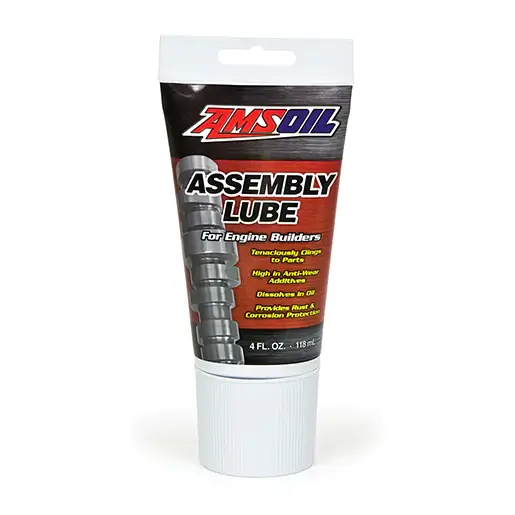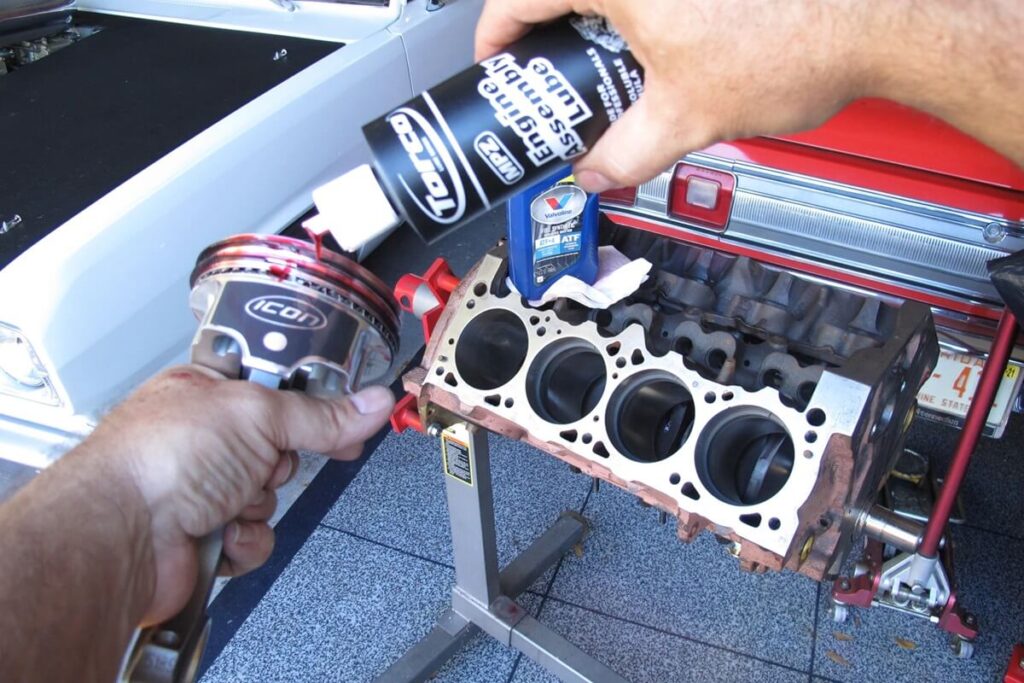If we talk about the procedure of assembling an engine, it’s a complex task and it requires a lot of attention and accuracy. If you want your engine to have a longer lifespan, then you need to take care of handling each of the components with care.
The vital component of this complicated procedure of engine assembly is the choice of the lubricant you are making for the lubrication of engine components, and engine-building societies often wonder if grease may serve as a suitable replacement for assembly lube.

In this article we will delve into fields of engine assembly, the properties of grease, functions of lubricants used during the process, and also if grease might serve as a substitute against assembly lube.
Understanding the Role of Assembly Lube:
It is necessary to understand the distinct properties of both grease and assembly lube during the engine-assembly process before we can conclude whether these two are interchangeable.
Assembly lube serves several critical purposes:
1. How to Avoid Dry Starts:
During the initial steps of engine assembly, sometimes the oil doesn’t start moving right away. Using lubrication during assembly helps prevent the engine from starting without enough oil, which could cause it to wear out too soon.
It also ensures that all the major components of the engine especially bearings and other moving parts are properly lubricated during this crucial stage.
2. Protection Against Gailing:
Gailing is a type of damage that is caused when two surfaces stick together and then separate, and it usually occurs in the early stages of engine use. Lubricating the engine acts as a barrier and reduces the risk of galling.
3. Sticking to Components:
The formulation of assembly lubricant enables them to stick to the components and not move under the effect of gravity or other factors. This feature guarantees that the lubricant doesn’t get displaced during the entire process and keeps working even if the engine is non-functional for a long time.
4. Compatibility with Engine Oils:
Assembly lubricants have such a composition that they are compatible with engine oil. They blend with the oil smoothly and provide another layer of protection and lubrication.
Grease vs Assembly Lube: Examining the Differences
Listed below are the similarities and differences that can tell us whether grease can substitute assembly lube.


1. Formulation:
The formulation of assembly lube comprises certain additives that ensure that the best lubrication is carried out during the initial critical steps. The additives include corrosion inhibitors, anti-wear compounds, and other specially designed parts.
On the other hand, grease is a semi-solid fluid that is composed of base oil and a thickening agent that is mainly soap or another substance. Grease is usually used for some major applications but its composition is somewhat not what engine assembly needs.
2. Consistency:
Assembly lubes are created to be thick enough to stick to the parts without being greasy. This consistency guarantees that the lubricant is evenly distributed during the assembly process and sticks well to the surface.
As compared to assembly lubes, grease may not have such consistency and it is typically thicker. It is not distributed evenly during the assembly process which may be an issue.
3. Solubility and Compatibility:
Assembly lubes are made in a way that they are compatible with the engine oil in terms of solubility. They mix with the engine oil easily, making it simple to switch functions between putting the engine together and regular use.
Greases are compatible with oils but only to a certain extent, they cannot be as soluble as assembly lubes. This variation in the trend of solubility leads to the effect on the overall efficiency of the lubricating system.
4. Purpose-Built Formulation:
Assembly lubes have special formulations used to address the unique difficulties that occur during engine assembly. They differ from the specialized solutions in a way that they use certain additives and chemicals that prevent corrosion resistance and wear prevention.
Unlike assembly lubes, greases are formulated for various uses such as general lubrication in bearings and joints. However, its composition is somewhat not suitable for the particular requirements of engine assembly.
Similar Posts:
- Can You Lubricate the Timing Belt?
- Is Hub Oil the Same as Gear Oil?
- 75w90 vs 80w90: Which Gear Oil is Better For Your Car?
- Motul vs Amsoil: Which is Better in Performance?
Can Grease Substitute Assembly Lube?
The answer to whether grease substitute assembly lube depends on certain conditions and requirements, some of which are as under:

1. Emergency Situations:
In case of emergency conditions where assembly lubes are not available, then we can use grease with high compatibility in terms of solubility with engine oil as a temporary solution.
2. Compatibility Testing:
It is advised to have a compatibility test of grease before using it as a substitute for assembly lubricants. This means making sure the grease sticks well to the parts during assembly, mixes well with engine oil, and does not affect the overall efficiency of the process.
3. Risk Assessment:
The assembly of the engine is a very critical step that has a great influence on the overall optimal performance and durability of the vehicle. In this stage, grease can give some lubrication, but it encounters certain risks such as uneven distribution, not mixing well, or lack of certain special additives. So, grease is not as good a choice as specific assembly lubes.
4. Long-Term Impact:
Using grease instead of assembly lubes for a long time might have unknown effects. It’s recommended to stick with assembly lubes because not using them can lead to parts wearing out too soon, more friction, and even damage to engine components.
Conclusion:
Engine assembly lubes are designed to overcome startup difficulties, prevent galling, and keep the parts sticking together. Hence they guarantee overall efficiency and optimal performance of the engine.
For car manufacturers and enthusiasts, when it comes to assembling engines, accuracy is the key.
You must follow manufacturer instructions and get high-quality assembly lubricants as your engine lifespan and durability are dependent on them.


![Can I Use Grease Instead of Assembly Lube? [ANSWERED] Can I Use Grease Instead of Assembly Lube?](https://carstale.com/wp-content/uploads/use-grease-instead-of-assembly-lube-1024x457.jpg)